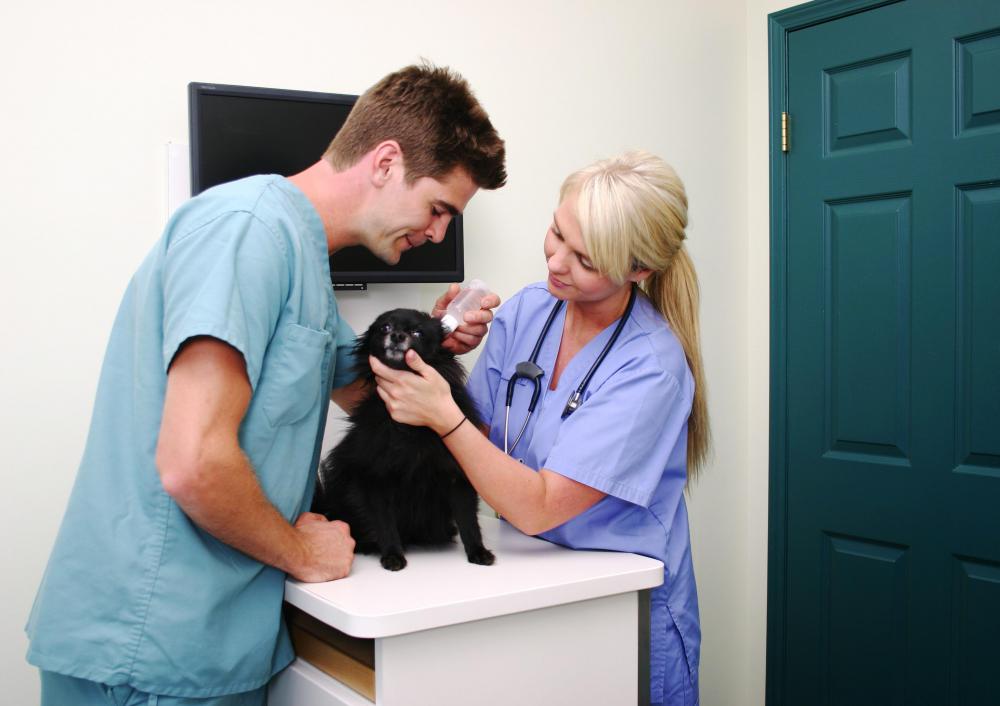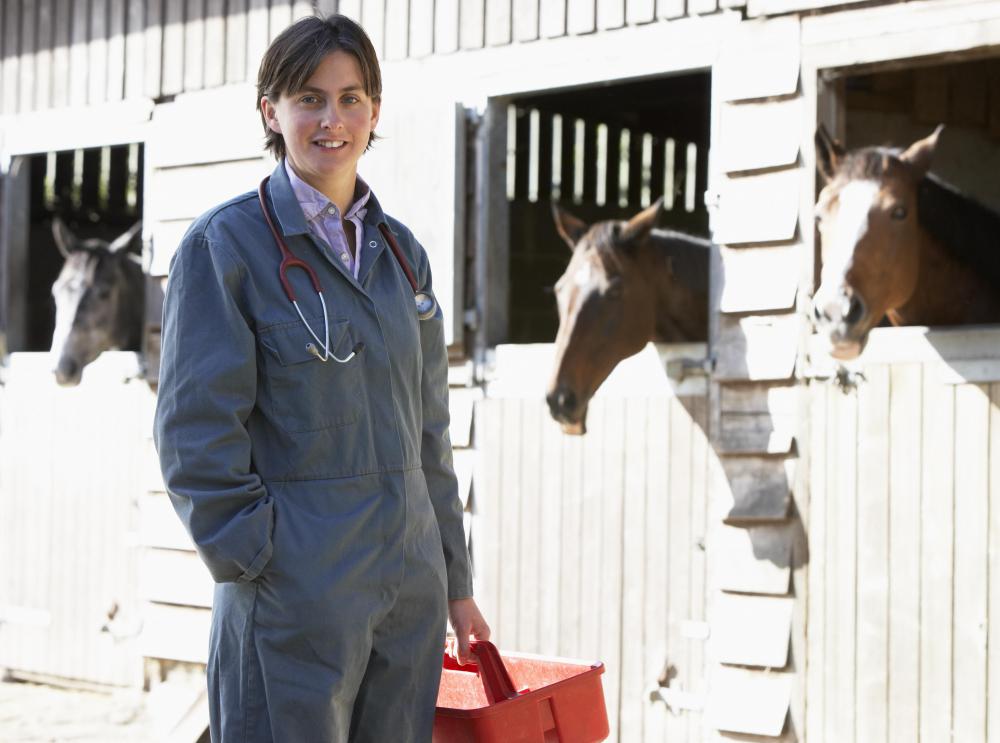At WiseGEEK, we're committed to delivering accurate, trustworthy information. Our expert-authored content is rigorously fact-checked and sourced from credible authorities. Discover how we uphold the highest standards in providing you with reliable knowledge.
What Are the Different Veterinary Qualifications?
Veterinary qualifications include academic, certification and licensing requirements. Undergraduate students who wish to become veterinarians must take pre-veterinary courses and apply to an accredited graduate veterinarian school. After graduation, veterinarians must also fulfill national certification requirements. In addition, veterinary qualifications include fulfilling licensing requirements, which are determined by the state or territory where the veterinarian chooses to practice.
Students who apply to graduate programs can increase their veterinary qualifications by gaining real-world experience working with animals. Experience might include working as an assistant at a veterinarian’s office or an animal shelter, as a research assistant at a facility that uses animals or even on a farm or ranch. Positions that require applicants to work with animal owners also prepare applicants for running a private veterinarian practice later.

Applicants to veterinarian graduate schools are not necessarily required to have a bachelor’s degree, depending on the schools an applicant seeks admissions from. Having a bachelor’s degree does, however, make an applicant more competitive since most who apply have earned or are on the verge of earning a bachelor’s. Students must take pre-veterinarian courses, which include numerous life science classes such as biology and zoology. Some veterinarian schools also require applicants to take classes in business management and the humanities.

Taking a standardized entrance exam is also another part of veterinary qualifications, before an applicant can be considered for admission to a veterinarian program. Most veterinarian programs require students to take a general graduate admissions test, such as the Graduate Record Examination (GRE). Other veterinarian programs require applicants to take an admissions test made only for graduate veterinarian applicants, or a graduate medical school admissions test.

Once a person graduates from a veterinarian school, he must fulfill veterinarian qualifications as set by the national veterinarian board. Part of the requirements for certification might include successfully fulfilling a residency that can last up to four years. Residency veterinary qualifications are specialized in fields such as nutrition or dentistry, allowing veterinarians to become specialists. Fulfillment of these requirements allows a new veterinarian to become certified, which can lead to better-paying career opportunities.

Licensing veterinary qualifications are regulated by the state, territory or province where a veterinarian chooses to practice. In general, licensing rules require an applicant to have graduated from an accredited graduate veterinarian program and pass the national board’s licensing exam. Depending on the state, territory or province, veterinarians may also need to take a separate examination on local laws and regulations before earning a license.
AS FEATURED ON:
AS FEATURED ON:















Discuss this Article
Post your comments